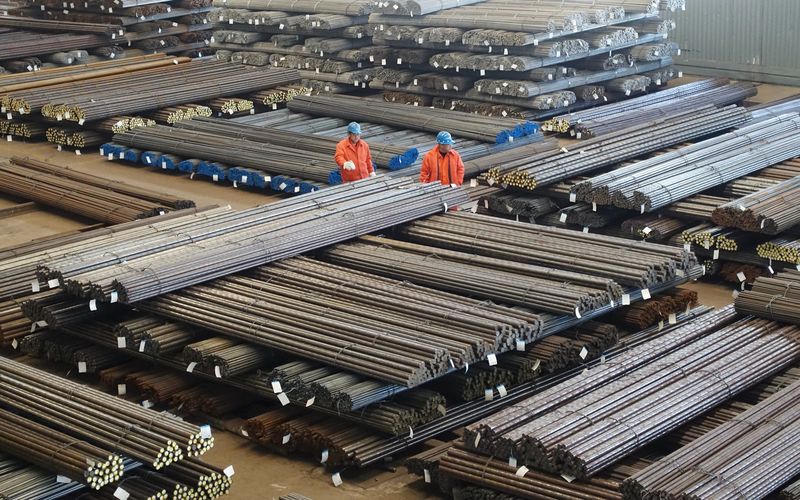By Ruby Lian and Manolo Serapio Jr
SHANGHAI (Reuters) - China's commodity exchanges are trying to cool their markets as benchmarks rallied rapidly this week, with turnover of a single rebar contract on Thursday worth nearly 50 percent more than the total value traded on the Shanghai stock exchange.
Chinese investors - both funds and individuals - appear to be making big bets that a rise in infrastructure spending will be positive for battered commodities such as steel and iron ore, turning their interest away from equities after a crash last summer that has driven down stocks by 40 percent.
Financial investors were likely behind the recent gains in Chinese commodity futures volumes and prices, analysts said, but they also warned of a big crash given weak fundamental justification for the upswings.
"Financial investors are massively buying any commodities futures that they believe are cheap and they will push up prices until short investors are beaten," said Wang Bing, a senior broker with Orient Futures in Shanghai.
Open interest in the rebar contract has already fallen sharply, suggesting some of the trades are being executed by investors holding short positions that are getting squeezed.
The benchmark rebar futures contract saw approximately 303 billion yuan ($47 billion) in trade value by the Thursday close, based on a record 111.8 million tonnes changing hands and calculating based on the settlement price of 2,708 yuan per tonne.
That compares to around 209 billion yuan worth of volume on the Shanghai Stock Exchange the same day.
To slow the trading pace China's two main commodities exchanges announced late on Thursday that they would raise transaction fees from Monday for some contracts, including iron ore and steel.
The Dalian Commodity Exchange (DCE) said late on Thursday it will increase the trading margin for iron ore futures to 8 percent from 7 percent. It will also raise transaction fees and daily movement limit for some products.
"The transaction volume and turnover of many futures products have rapidly increased with more volatile price movements, suggesting the market could be overheated," the DCE said in a statement.
The Shanghai Futures Exchange (ShFE) said it will raise transaction fees for rebar and hot rolled coil futures, warning of trading risks due to huge price swings.
Rebar futures in Shanghai surged 6 percent to hit their daily limits on Tuesday and Wednesday.
On the Dalian exchange, the most-traded iron ore contract rose by its 6 percent daily limit on Wednesday and Thursday.
Shanghai steel futures are up more than 50 percent so far in 2016 after six straight years of losses. Dalian iron ore futures have risen more than 60 percent after gaining over 40 percent in 2014 and 30 percent in 2015.
The rally in Chinese ferrous futures fueled sharp gains in the spot iron ore benchmark, which rose by almost 20 percent this week to near $70 a tonne, its highest since January 2015. [IRONORE/]

($1 = 6.4925 Chinese yuan)